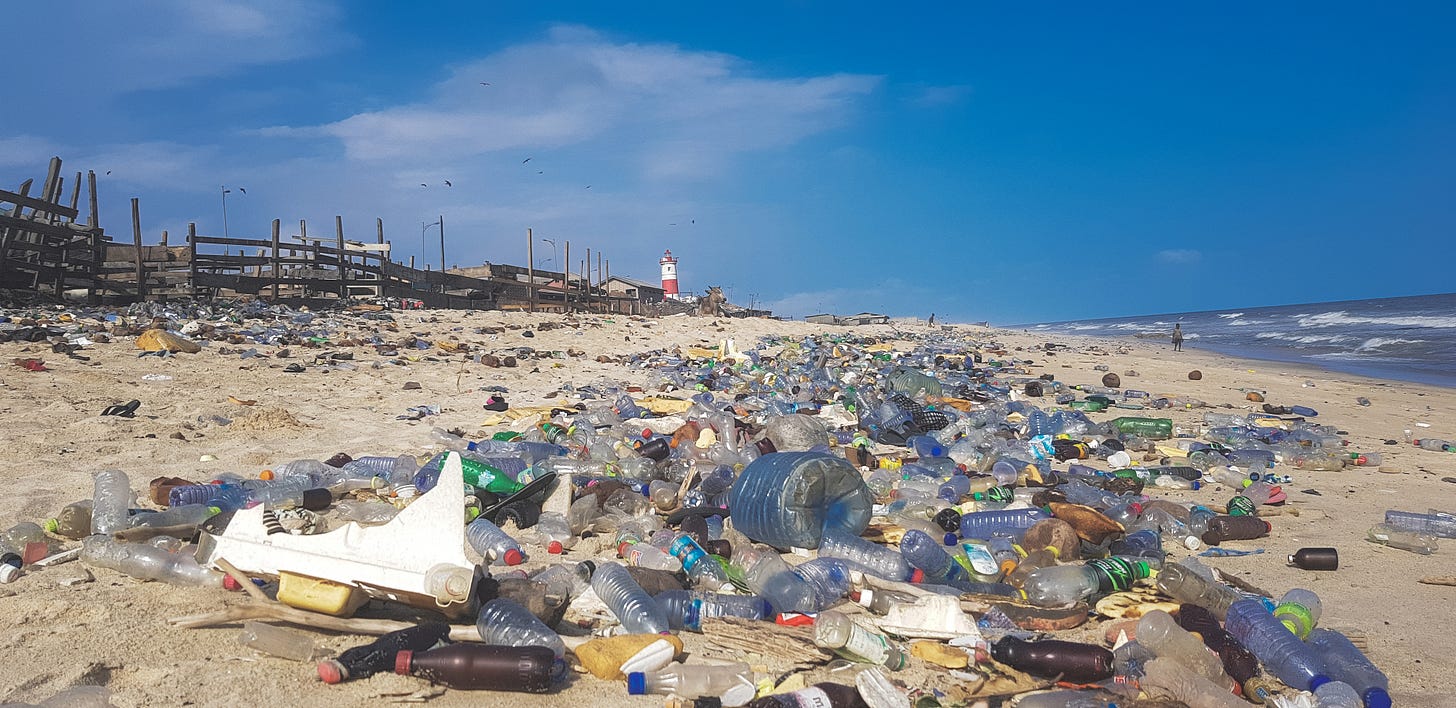Negotiations to Limit Plastic Pollution Fail Again
Petrostates Continue to Block New Global Treaty
International diplomats in Geneva have failed to agree on a United Nations Global Plastics Treaty, after nine days of intense negotiations found no consensus on how to combat the deluge of plastic pollution poisoning the Earth’s biosphere.
The world produces about 460 million tons of plastic annually, and one quarter is mismanaged - meaning it ends up in unsealed landfills, terrestrial litter or in the oceans. This plastic pollution wrecks havoc on ecosystems, where it entangles and injures animals and releases toxic chemicals.
Worse, plastics do not biodegrade. They merely break down into smaller and smaller pieces - known as microplastics - which accumulate in the bodies of wildlife and humans alike. It is currently estimated that humans ingest about 5g (about a credit card’s worth) of plastic a week.1 And new evidence shows the smallest microplastics are accumulating in our brains.2
The onslaught of plastic pollution shows no sign of stopping. Plastic production is predicted to nearly triple to 1.2 billion tons by 2060.
Petrolei Sacra Fames
In 2022 the United Nations Environment Assembly (UNEA) started the process of drafting a legally binding treaty to combat plastic pollution across its full life cycle. Negotiations have been going on for three years, and the failed meeting in Geneva which ended Friday was the sixth consecutive meeting that terminated without an agreement.
Crucially, the original 2022 UNEA resolution required the treaty to be negotiated by consensus - which has thus far been impossible to find. A group of European and other environmentally-minded nations want the treaty to include a hard cap placed on global plastic production. They are opposed by group of oil producing nations - including Saudi Arabia, Iran and Russia - who have argued for a watered-down treaty with no hard caps and a focus solely on ensuring plastic waste is properly disposed.
Efforts to bridge the gap have been complicated by the defection of the United States to the oil-producing bloc since the election of Donald Trump.
Why are oil producing nations fighting tooth and nail against limiting plastic production? In a word - greed. About two thirds of current oil production is used as fuel for light vehicles. But as electric vehicles gradually replace their gasoline-powered counterparts, plastics - which are also made from crude oil - will make up a larger and larger share of oil demand. In a world of solar panels and EVs, plastics are one of the few growth industries oil producers have left. And they don’t want to give it up.
The petrostates would have us believe that the world’s plastic production can increase dramatically with zero damage to the environment - so long as more plastic waste is properly stored in sealed landfills or incinerated.
But the petrostates are wrong. Any gains in improving the percentage of plastics which are disposed of correctly will be erased in absolute terms by new production. And even properly disposed plastics create harm. The microplastics accumulating inside our bodies, for example, are typically ingested before disposal. And incineration - though effective at preventing ecosystem contamination - creates air pollution.
Over the next year, the responsible nations of the world should ditch the UNEA’s requirement for consensus and adopt new voting rules which bypass the petrostates to enact a strong global anti-plastics treaty. Plastics are wonderful materials in many ways, but overall production must fall and their use should be limited to a small number of applications in which their disposal is least likely to be mismanaged.
The Great Plastification of our planet must end.




